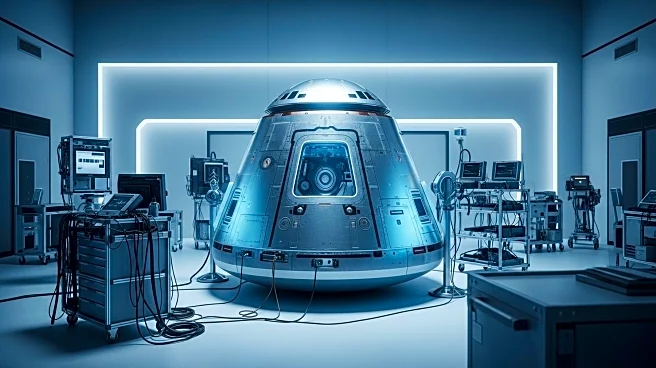What is the story about?
What's Happening?
Blue Origin is expanding its New Shepard fleet to increase the frequency of suborbital space tourism launches to as often as once a week. The company plans to develop three additional New Shepard vehicles and is exploring the establishment of a second launch site beyond its current base in West Texas. This expansion aims to alleviate bottlenecks and enable more flexible scheduling, potentially attracting a broader customer base, including international clients. The move aligns with broader trends in commercial spaceflight, where Blue Origin seeks to capitalize on growing demand for suborbital flights.
Why It's Important?
The expansion of Blue Origin's New Shepard fleet represents a significant step in the commercialization of space tourism. By increasing launch frequency, the company can cater to the rising demand for suborbital flights, offering unique experiences to tourists, researchers, and payloads. This initiative positions Blue Origin as a key player in the space tourism industry, competing with rivals like Virgin Galactic and SpaceX. The expansion also underscores the potential for economic growth and technological advancements in the commercial space sector.
What's Next?
Blue Origin is expected to continue developing its New Shepard vehicles and finalize plans for a second launch site. The company will focus on scaling operations and ensuring robust supply chains to meet ambitious targets. As Blue Origin expands its fleet, it may explore partnerships and collaborations to enhance its offerings and attract a diverse customer base. The success of this expansion could redefine commercial space access and contribute to the growth of the space tourism industry.
Beyond the Headlines
Blue Origin's expansion reflects Jeff Bezos's vision for a multi-planetary future, with New Shepard serving as a stepping stone. The company's focus on reusable technology and acceptance of cryptocurrencies for bookings highlights innovative approaches to space tourism. As Blue Origin integrates with other projects like the New Glenn rocket and lunar ambitions, it aims to foster a sustainable space economy, potentially including educational and research partnerships.
















